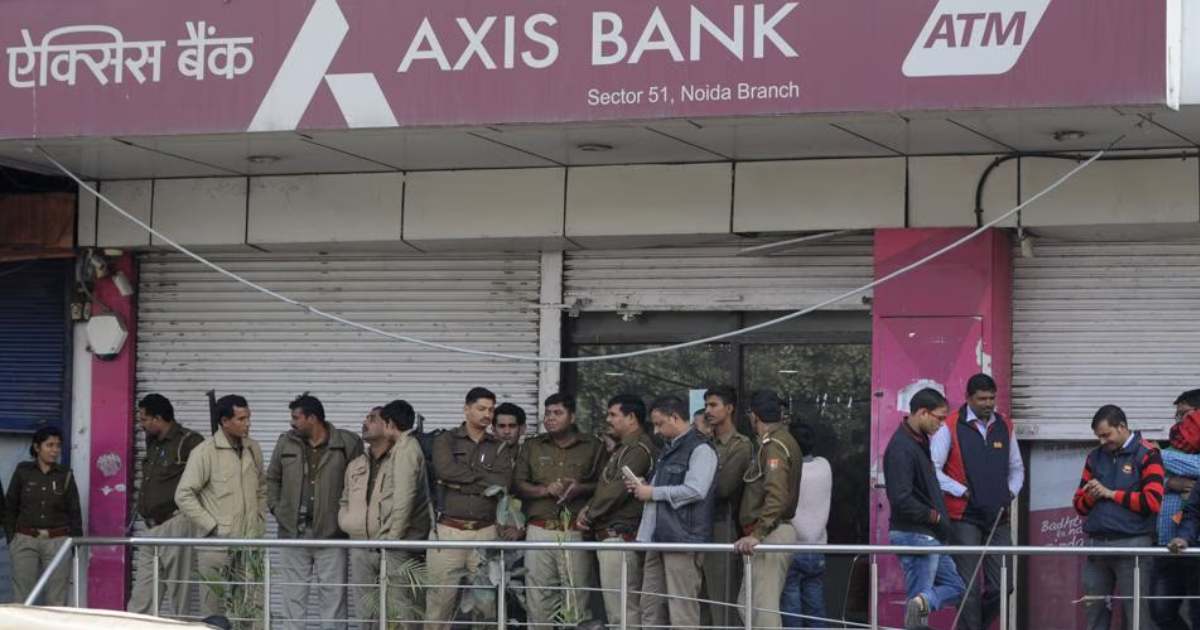Axis Bank Ltd. has been fined Rs 1.66 crore by the Financial Intelligence Unit (FIU) for failing to detect and report suspicious transactions at one of its branches. The penalty comes in the wake of a fraudulent account created in the name of the National Security Guard (NSG), a counter-terrorist commando force.
Fraudulent Account and FIU Penalty
The FIU, an agency under the Union Finance Ministry responsible for enforcing anti-money laundering laws, imposed the fine after investigating the creation of a fraudulent account purportedly for aggregating illicit funds. The account was allegedly created with the complicity of an Axis Bank employee, who is accused of being involved in a large-scale fraud and corruption scandal.
Background of the Case
The fraudulent activities were reported to have taken place in Gurugram, Haryana, in 2021. According to officials, the local police and the Enforcement Directorate (ED) have been investigating the case for several years. Last year, the ED attached assets worth Rs 45 crore belonging to an NSG officer on deputation from the BSF and his family members, including his sister who was a manager at Axis Bank.
FIU’s Findings
The FIU’s investigation, concluded after considering written and oral submissions from Axis Bank, substantiated the charges against the bank. The agency highlighted the bank’s failure to establish a system to detect and report suspicious transactions, properly investigate and close alerts, and address alerts within a reasonable period.
ALSO READ: Join the Movement: Future Crime Research Foundation Launches State Chapters to Build a Cyber-Safe India
CLICK THIS LINK TO BECOME DOMAIN LEAD
Directives to Axis Bank
In its summary order issued on June 3 under Section 13 of the Prevention of Money Laundering Act (PMLA), the FIU directed Axis Bank to implement several corrective measures:
- Review Mechanism: Axis Bank must review its current transaction monitoring system to understand why alerts were not raised in this case and ensure compliance with customer due diligence mandates.
- Certification: The bank is required to provide certification within 90 days, confirming the steps taken to establish a robust transaction monitoring mechanism.
- Data Management: The FIU criticized the bank for furnishing disorganized data dumps, which created confusion and hindered the scrutiny process. The agency advised Axis Bank to streamline its data-sharing practices to maintain clarity and coherence in all submissions to regulatory authorities.
- Employee Screening and Training: Axis Bank must implement stringent procedures for employee screening, as mandated by the Reserve Bank of India’s (RBI) know-your-customer (KYC) guidelines. The bank is also required to establish an ongoing training program to ensure continuous compliance with regulatory requirements.
ALSO READ: TalkCharge a Ponzi Scheme? Users Allege ‘Biggest Wallet Scam in India’
Role of FIU and Implications
The FIU plays a crucial role in implementing anti-money laundering laws, similar to the Enforcement Directorate. It examines measures taken by banks and other financial institutions, designated as ‘reporting entities’ under the PMLA, to prevent money laundering and financial fraud.
The penalty against Axis Bank underscores the importance of robust mechanisms to detect and report suspicious transactions in the banking sector. It serves as a reminder to financial institutions to maintain stringent compliance with anti-money laundering regulations to safeguard against fraud and corruption.
The FIU’s penalty and directives to Axis Bank highlight the need for continuous vigilance and adherence to regulatory requirements in the financial sector. As the investigation continues, Axis Bank’s actions in response to the FIU’s directives will be closely monitored to ensure the implementation of effective anti-money laundering measures.


